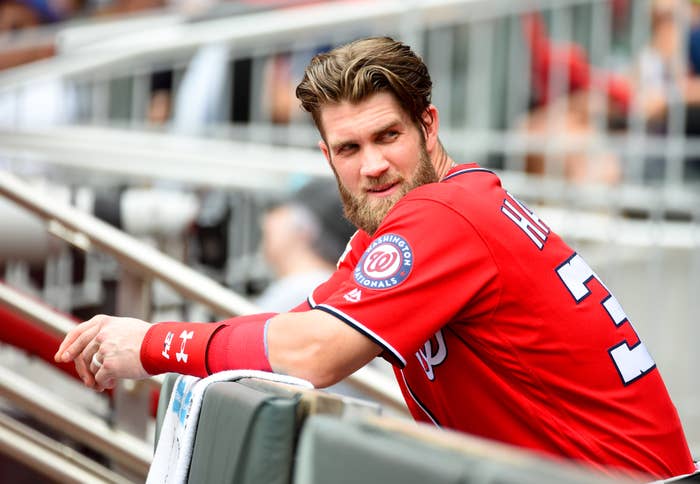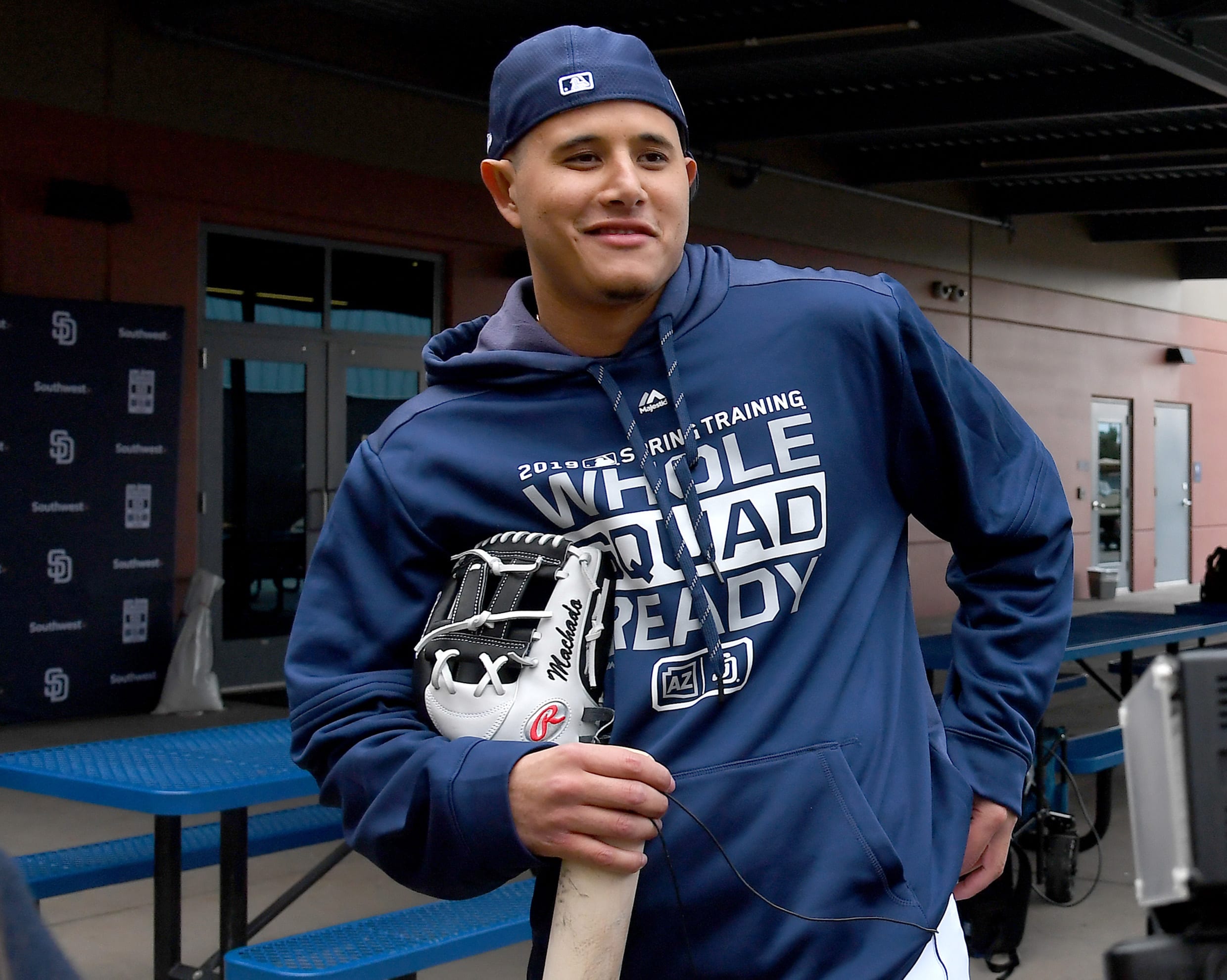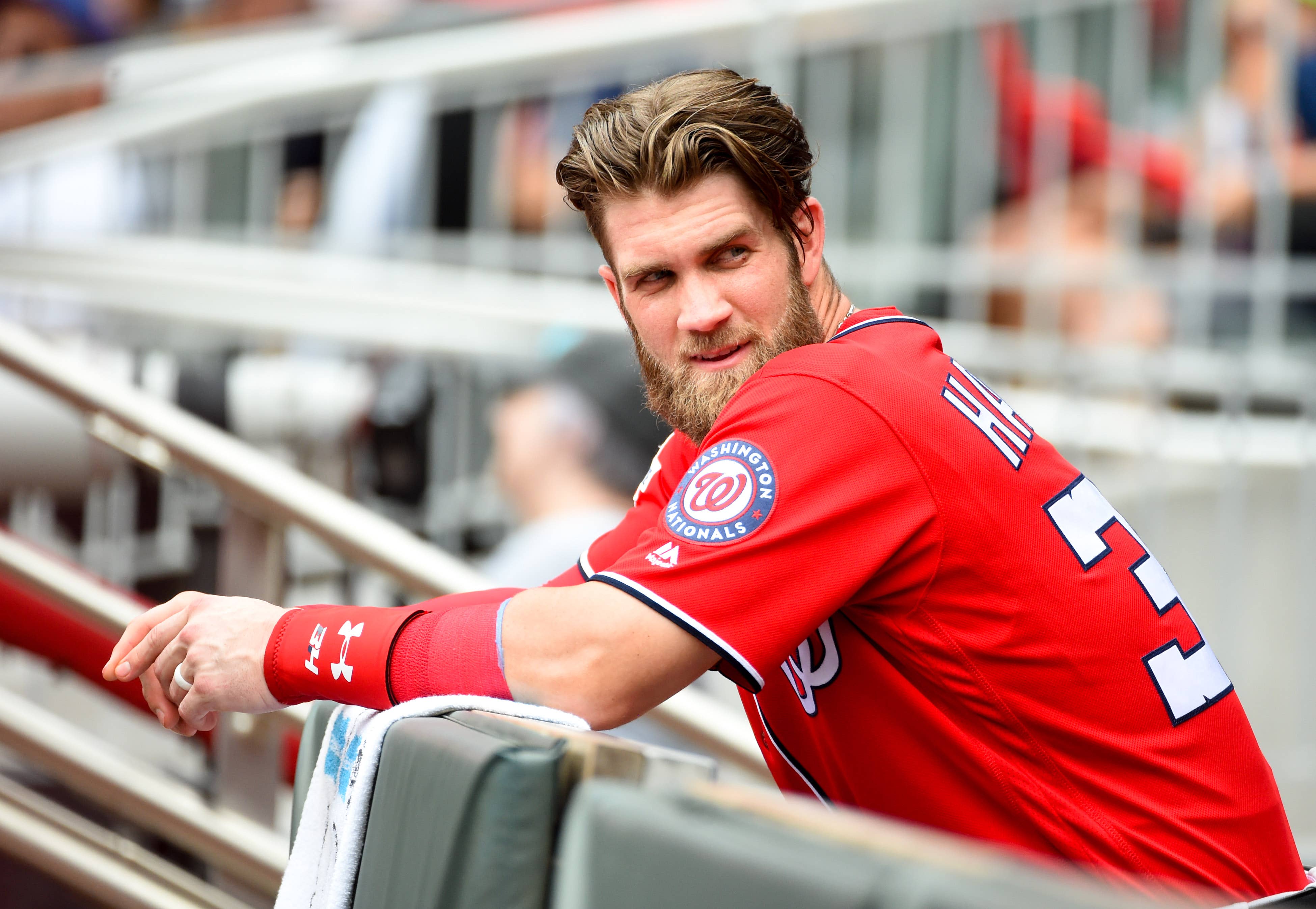
Basketball will always be the sexiest sport. Football will grant you eternal glory in exchange for non-guaranteed contracts. But baseball’s forever the place to be if you really, really, really want to get paid.
The national pastime shocked us again Thursday when news broke that All-Star outfielder Bryce Harper was reportedly close to inking his name to a stupefying contract—13 years and $330 million—with the Phillies. The 26-year-old former Nationals slugger will be paid an unfathomable amount of money that you know every other athlete in professional sports is jealous of right now.
Because only in baseball do teams hand out nine-figure contracts, fully guarnateed, for 10-plus years despite everybody knowing the pacts are almost assuredly destined to be spectacularly burdensome and idiotic.
I can list a ton of reasons why the Phillies will eventually wish they hadn’t signed Harper for that much money until he’s 39 and a decade past his prime. While he’s definitely one of the better players in the game right now, look more closely at his numbers—more specifically at the sabermetrics like his pedestrian WAR last year (1.3) and alarming regression in defensive runs saved (-23)—and you’ll find Harper ain’t exactly Ken Griffey Jr. The most pressing question to ask in the aftermath of the news isn’t why the Phillies did it. In the short term, they’re going to be World Series contenders for the next several seasons, with Harper anchoring the lineup. The most pressing question is this: What’s the over/under on the number of years it takes Philadelphia, and its hysterical fan base, to regret saying yes to this? Because if you’ve been paying attention, you know the track of record of guys signing deals that long is abhorrent.
The real question is: What’s the over/under on the number of years it takes Philadelphia, and its hysterical fan base, to regret saying yes to this?
As a massive baseball fan who follows the ins and outs of the sport on a daily basis, I find it mind-boggling that the league and its respective teams keep upping the ante and doling out these gag-inducing contracts. You’d think the sport would’ve learned its lesson from long-term deals gone horribly wrong that take guys into their mid-to-late 30s at high average annual values, like Alex Rodriguez’s (2008: 10 years, $275 million); Albert Pujols’s (2012: 10 years, $240 million); Miguel Cabrera’s (2016: eight years, $248 million); Robinson Cano’s (2014: 10 years, $240 million); and Prince Fielder’s (2012: nine years, $214 million). Then, in 2015, the Marlins told baseball to hold their beer when they signed Giancarlo Stanton to a record-breaking 13-year, $325 million deal, proving some teams just can’t help themselves or somehow think they’re special or believe this time will be different.
It won’t with Harper. I mean, it’s great that baseball is healthy enough that teams can continue to stomach these massive pacts without bankrupting themselves or hurting the sport at large. But you would think they’d be disciplined enough to know that these contracts are always destined to be albatrosses. The Angels can’t wait to get Pujols off the books. A-Rod was a shell of himself during his last few seasons with the Yankees and took steroids just to stay in the lineup before getting caught. Cabrera, one of the best hitters of all time, started to break down years ago, and he has five years left on his deal you know the Tigers now regret. Fielder had to retire early due to injuries, and the Mariners couldn’t justify paying Cano until he’s 40, especially after his PED suspension last season, so they found a team dumb enough (the Mets) to take on his contract. We’d be remiss not to mention Jason Heyward’s horrendous deal with the Cubs three years ago (eight years, $184 million), which just may go down as one of the worst ever due to his horrible offensive production.
Despite all of these examples of lunacy, the pattern continues. There’s just something about baseball executives and player agents who love to gamble and swing for the fences on these massive deals, assuring everyone that their guy will be the outlier. Before Harper, Manny Machado earlier this month signed for 10 years and $300 million with the Padres. The same age as Harper, Machado wanted to get paid and found a willing organization in San Diego. What’s the over/under on Machado wanting out of an organization that, while it feels it’s a season or two away from being relevant, hasn’t been a serious contender in almost two decades? At least Machado’s deal has an opt-out and limited no-trade provisions. The Rockies, shockingly, were widely praised for their extension with third baseman Nolan Arenado, who, at age 27, just signed an eight-year, $260 million pact with an opt-out after three years. It actually seems reasonable and prudent compared to what the Phillies just did.

Philadelphia locked itself into 13 long years of Harper—there are reportedly no opt-outs, and he was given a no-trade clause. Sure, during the early portion of the pact Philly will get him for a reasonable $25 million a year, especially if he continues to produce at a similar offensive clip. But what if Harper gets pissy with the organization or the acerbic fan base in six or seven years when his value is likely diminished? And when does Harper, a corner outfielder, finally concede to age and athleticism (again, we’ve already seen some decline defensively, and he’s dealt with injuries) and take up an infield position? The deal makes a modicum of sense if the National League (finally, astutely) adopts the designated hitter in the coming years, as has been speculated. But that’s still a big if, and should that never materialize, Philly’s most likely going to roll out Harper in his late 30s to play first base, hoping he can still swing the bat with enough power and authority to justify the roughly $58,000 he’s going to make per plate appearance. Or hopefully they can find another idiotic squad willing to pay his bloated salary. One dumb team always exists.
On this day, I guess we have to give the Phillies credit, since owner John Middleton infamously said last fall that they were prepared to spend “stupid money” in free agency. And Kudos to Harper and his agent, Scott Boras, for earning enough money (contractually and via commission, respectfully) to support generations of their families. And I guess give credit to the game as a whole for shocking fans yet again. If you’re one of those people who believe the definition of insanity is repeating the same behavior but expecting different results, then start calling the Phillies certifiable.

